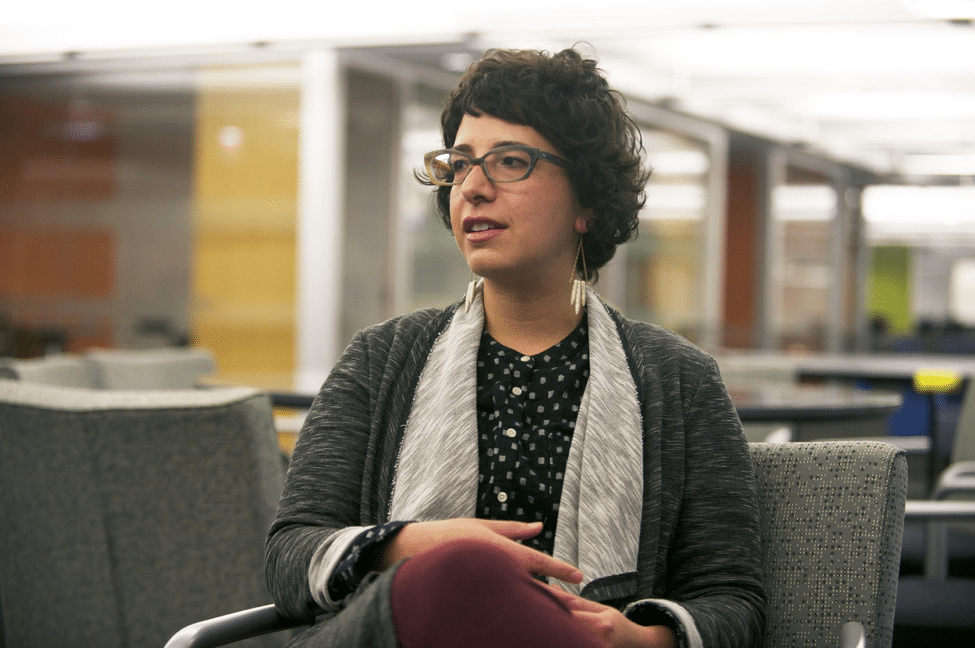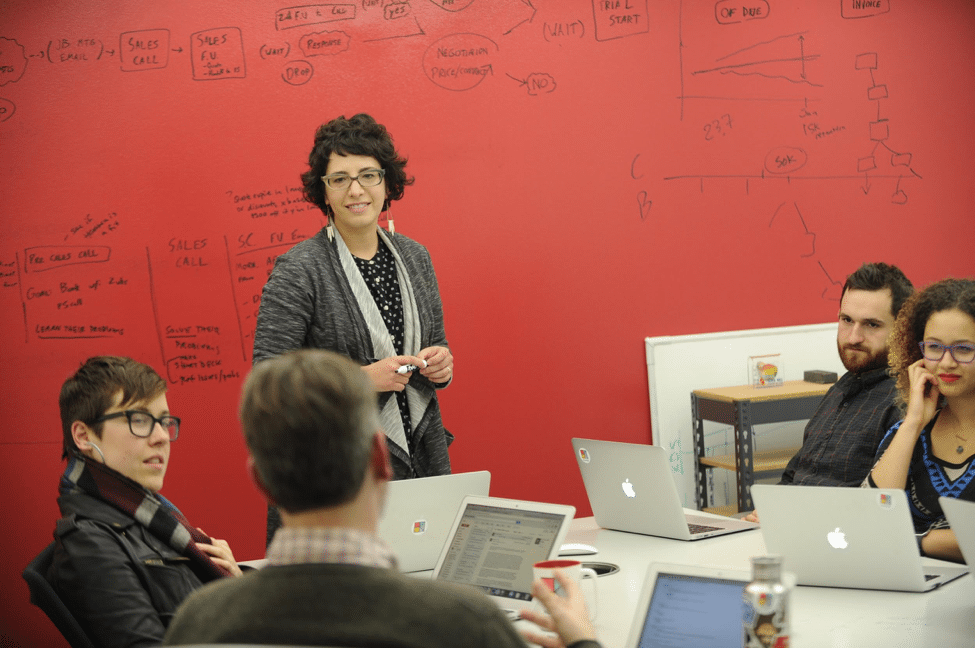Skift Take
Trying to revolutionize an industry as old as journalism is no easy feat, but Jennifer Brandel, founder of Hearken, is doing just that.
This sponsored content was created in collaboration with a Skift partner.
The Unbound Collection by Hyatt and SkiftX present The Freedom to be Extraordinary content series, which explores how breaking free from convention can lead to extraordinary success. These conversations will reveal how leading innovators and entrepreneurs approach creativity and how they’re embracing the freedom to be extraordinary.
As an art history major, Jennifer Brandel admits she was never interested in the field of journalism. But after hearing Ira Glass of NPR’s “This American Life” speak at her college, she found herself drawn to the art of storytelling. Brandel eventually moved to Washington, D.C. after graduation for an internship at NPR, where she began pitching story ideas and learning as much as she could about the industry. Her natural curiosity led her to cover topics across the spectrum, from environmental issues, to arts and culture, to explainer videos. “I felt like a little bit of an outsider in that I didn’t have a specialty or beat. But I was really curious about how the world worked and how people worked within it,” says Brandel.
Being an outsider, however, did come with its perks. Brandel says she soon realized that the profession allowed journalists to dictate stories without necessarily accounting for what the public was interested in reading. “I think if I had gone to journalism school and I had taken on the idea that I deserved that power and other people didn’t, I probably wouldn’t have noticed that as being something jarring,” she says. “Because it was so new, I questioned it a lot and I wrestled with that responsibility.” Brandel believed there had to be a way to get the thoughts and opinions of the public into traditional newsrooms across the globe. Brandel first experimented with the idea in 2011, through a series called Curious City for WBEZ in Chicago. After finding success on a local level, Brandel decided to scale up the approach, launching Hearken in 2015.
Brandel founded the company with one mission: Every individual is worthy of being heard. “Hearken is really an answer to creating that kind of door where a newsroom can have a flow of information directly from their community or the communities they want to be serving and maybe aren’t,” says Brandel. “It’s a model to really have that feedback before journalists make decisions on what stories to report rather than afterwards.” Publishers can embed Hearken modules to their websites and ask readers to submit suggestions about what they would like to read. Hearken’s technology platform then allows journalists to see what their readers are interested in, what issues are trending, and even assign stories to journalists through one easy portal.
Brandel may have started as an outsider, but these days the journalist is no doubt playing a major role in shaping her industry’s future. Through Hearken, she hopes she can help her colleagues around the globe rethink what it means to be a journalist. “I hope to see journalism’s re-invention not as a hyper-competitive field in which newsrooms are trying to outbox other newsrooms and get more clicks, but where newsrooms really see themselves as an asset to a community and as service to that community,” she says. In most newsrooms, a small group of editors dictate which stories to cover for the community. Hearken, Brandel says, is aiming to get the public’s foot in the door. “Hearken is really allowing the public to be present at that table by allowing their curiosity and questions to be present in that space,” she says. “They should be able to have a seat at the table where decisions are being made.”
In many ways, Brandel says, Hearken aims to democratize the editorial process of journalism. While journalists still have the final say on what they choose to write about, Brandel says the platform allows it to be a two-sided conversation. “Input from the public can really shape the final product, so journalists can stop making stories for a nameless, faceless mass, but instead for individuals that are nuanced, subtle, complex, and real,” she says. One recent example of this approach in action was when New Hampshire Public Radio asked community members to submit questions for governor candidates that were later asked during a live public forum. The NHPR reporter then published the answers in an article on the station’s website and even followed up with question-askers individually.
Brandel’s unorthodox approach to journalism has come with its fair share of praise and even controversy. News sites have long struggled with whether or not they should even allow users to leave comments in the comment section. The idea of inviting them into the newsroom, Brandel says, isn’t necessarily a welcomed practice. “I think journalists are really only used to hearing back from the public when the public is mad or has a complaint,” says the Hearken founder. “If you think that all the public has to offer is complaints, then why would you want to open that door further. But our approach is not about collecting people’s complaints — it’s about what information they don’t have that they wish you, as a professional information collector, can gather for them.”
Although many newsrooms have tried to adopt a similar process in-house, Brandel insists that what Hearken does goes beyond a technology platform. “I think a lot of newsrooms are beginning to realize that tools are not the answers to their problems. It’s about processes and about why and how versus what and where,” says Brandel. “That’s where we live and have a lot of experience, valuable advice, and best practices to share.”
The Hearken model isn’t just ideal for newsrooms, either. In the future, Brandel sees the model being adopted by cultural institutions, universities, and governments as a way to connect to their audiences. “We’re hearing from government and civic organizations who feel like they have done too much talking from the top of the hill and want to do more listening and serving,” Brandel says.
Click here to see more articles from the Hyatt Unbound Collection interview series.
Have a confidential tip for Skift? Get in touch
Tags: The Freedom to be Extraordinary, The Unbound Collection by Hyatt™


